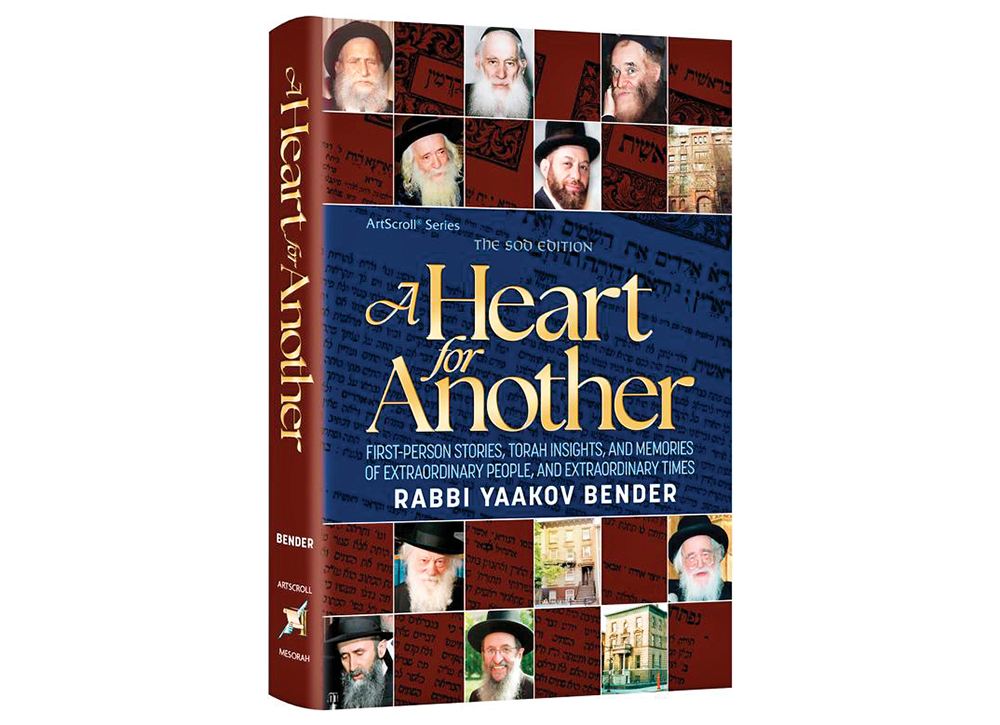Excerpting: “A Heart for Another” by Rabbi Yaakov Bender. Artscroll Shaar Press. 2024. Hardcover. 336 pages. ISBN-13: 9781422642610.
(Courtesy of Artscroll) I remember the levayah of Rav Aharon Kotler, and how we accompanied the aron to the airport, from where it was to be flown to Eretz Yisrael for kevurah. In an unprecedented move, TWA Airlines had agreed not just to transport the aron to Eretz Yisrael in regular passage, removing several seats from the aircraft to allow for the space, but they had also consented to place a curtain around the aron and allow a group of talmidim to sit around it, continuing their shemirah until the kevurah.
It was a rare display of true kavod HaTorah for the America of those years, and the send-off from the airport was equally respectful, as befitting a levayah for a giant, a Rosh Yeshivah, a manhig, and a father to so many.
Just after the levayah, his son and successor, Reb Shneur, was sitting in the airport and accepting nechamah from people, a line forming in front of him despite the din and commotion all around.
Somehow, Reb Shneur, the bereaved son, managed to pick up a heated discussion between some of the bachurim, though they were not in front of him. He called one of them over and asked what they were talking about.
The talmid explained that there was a chasunah that night for one of their friends, but none of them felt it appropriate to go dance. They were simply too heartbroken.
Reb Shneur looked at him in surprise. “It is not even a shailah,” he said, “that just as you had a tafkid to mourn your rebbi, you now have a tafkid to be mesameiach a chassan and kallah. Why should the couple lose out on the simchah that is rightfully theirs because of what happened?”
Interestingly, I think that this might have been the first psak that Reb Shneur gave after assuming his father’s position, and it reflects his leadership. He had the unique ability to balance what sometimes appeared to be contradictory demands, to know how to fuse genuine yiras Shamayim with genuine simchah, to protect and safeguard the olam hayeshivos while radiating ahavas Yisrael and respect for each Yid.
Not long after the Second World War, Rav Michoel Ber Weissmandel met with the Satmar Rebbe.
Later, he told his talmidim, “I have never seen a Yid whose heart is as broken as that of the Satmar Rebbe … he just covers it over with his smile.”
The Satmar Rebbe carried the pain of the klal and of the yachid. He lived, as the Chovos HaLevavos tells us about tzaddikim who are constantly doing teshuvah, with “aveilo b’libo, his mourning in his heart, v’tzahalaso al panav, his joy on his face.”
That balance made him such a great leader.
During this last period of war in Eretz Yisrael, when we heard bad news day after day, I received a call from the parents of a bar mitzvah boy. They wondered if they should cancel the music they had planned for their son’s bar mitzvah as a way of commiserating with those suffering in Eretz Yisrael.
I told them that they absolutely should not cancel the music. Why should the boy lose out on something his friends had, and feel badly about it? And why should they absolve themselves with a mere external act of empathy?
Rather, I suggested, they keep the music. But instead, they should give their hearts. They should undertake to daven more and reflect more on the reality of people living under the threat of constant danger, of children whose schools are closed, parents who cannot work, fathers and brothers called away from home.
When they feel the pain and distress, they should say a perek of Tehillim, and then go dance at the bar mitzvah.
Both are possible, and that is what it means to be a Yid.
Reprinted from ”A Heart for Another” by Rabbi Yaakov Bender with permission from the copyright holder, ArtScroll Mesorah Publications.











